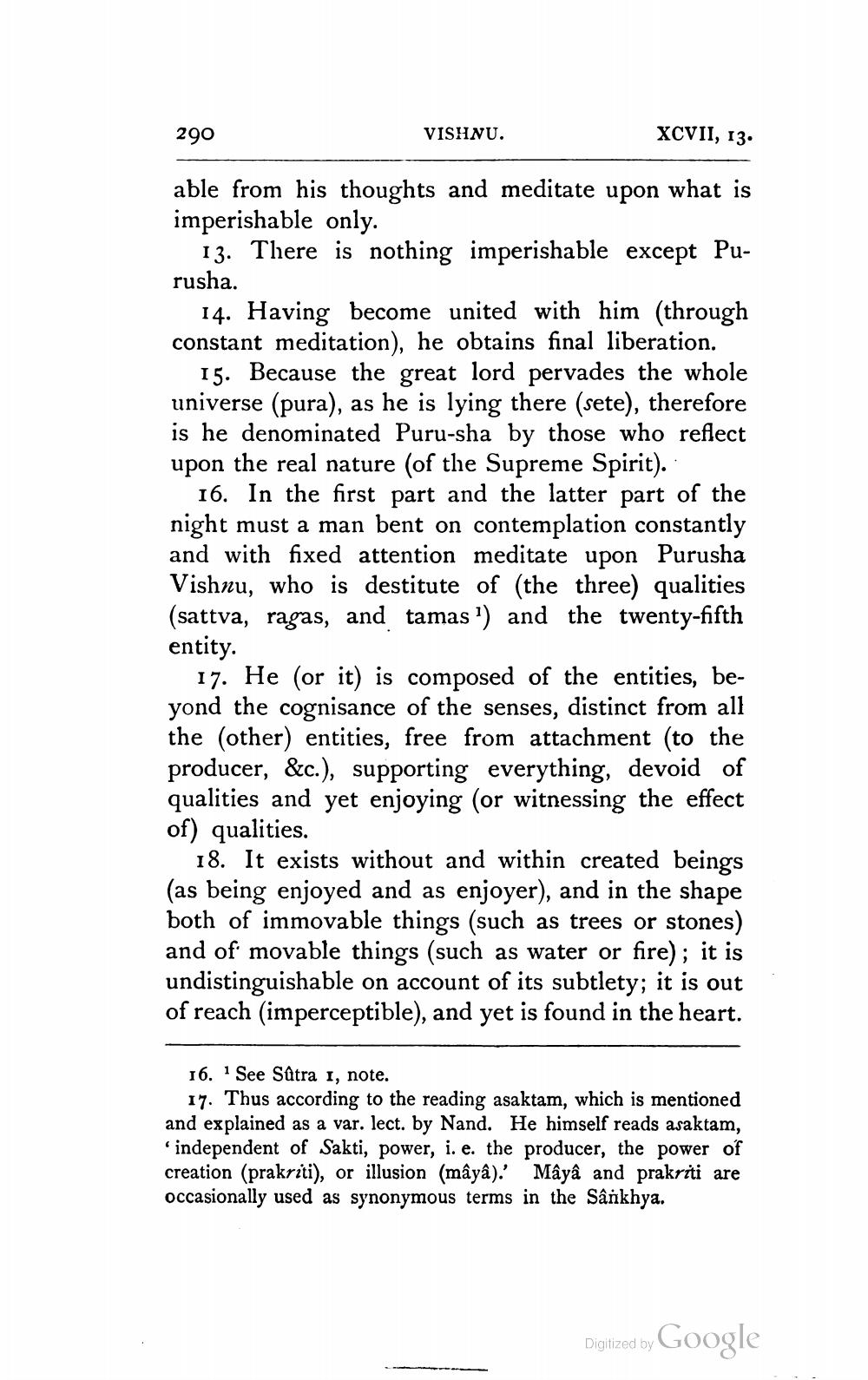________________
290
VISHNU.
XCVII, 13.
able from his thoughts and meditate upon what is imperishable only.
13. There is nothing imperishable except Purusha.
14. Having become united with him (through constant meditation), he obtains final liberation.
15. Because the great lord pervades the whole universe (pura), as he is lying there (sete), therefore is he denominated Puru-sha by those who reflect upon the real nature (of the Supreme Spirit).
16. In the first part and the latter part of the night must a man bent on contemplation constantly and with fixed attention meditate upon Purusha Vishnu, who is destitute of (the three) qualities (sattva, ragas, and tamas 1) and the twenty-fifth entity.
17. He (or it) is composed of the entities, beyond the cognisance of the senses, distinct from all the (other) entities, free from attachment (to the producer, &c.), supporting everything, devoid of qualities and yet enjoying (or witnessing the effect of) qualities.
18. It exists without and within created beings (as being enjoyed and as enjoyer), and in the shape both of immovable things (such as trees or stones) and of movable things (such as water or fire); it is undistinguishable on account of its subtlety; it is out of reach (imperceptible), and yet is found in the heart.
16. 1 See Sætra 1, note.
17. Thus according to the reading asaktam, which is mentioned and explained as a var. lect. by Nand. He himself reads asaktam, 'independent of Sakti, power, i. e. the producer, the power of creation (prakriti), or illusion (mâyâ).' Mâyâ and prakriti are occasionally used as synonymous terms in the Sankhya.
Digitized by
Digitized by Google




